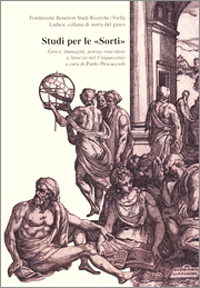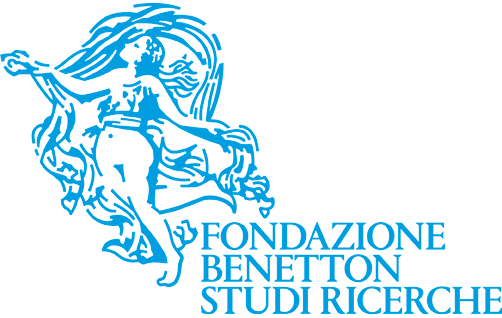
Studi per le «Sorti»
Gioco, immagini, poesia oracolare a Venezia nel Cinquecento
[Studies for the «Sorti». Games, images and oracular poetry in 16th-century Venice]
edited by Paolo Procaccioli
Fondazione Benetton Studi Ricerche-Viella,
Treviso-Rome 2007
268 pages
13 illustrations in colour and 58 black and white
40 euros
ISBN 978-88-8334-276-9
(Ludica, 8)
Francesco Marcolini, who published Pietro Aretino and Sebastiano Serlio, was famously interested in mechanics and engineering and was universally known in early 16th century Venice as l’ingegnoso. In 1540 he also tried his hand at writing and published Le sorti intitolate giardino d’i pensieri under his own name. While at first sight the work seemed to reflect a still current popular tradition, in actual fact it offered the reader a sort of literary game that had little to do with astrological anxieties and probing individual destinies and much with a figurative and combinatory passion. Various artists collaborated in the work, all of whom remain anonymous except for the designer of the title page, Giuseppe Porta, and a poet, Ludovico Dolce, and even his name appears in code.
The outstanding quality of the work, attested by universally esteemed readers such as Vasari and Doni, was in itself enough to ensure its publishing success (starting with the reprint of 1550), but the injunctions of the Index soon repressed any spirit of enquiry into fate, even when not ludic. Nevertheless, the visual images of the book enjoyed enormous popularity that continued well into the 17th century.
The essays collected here – which accompany the anastatic reprint and the new edition of the terzine – explore the figure of the author, illustrate the technical features of the venture from a typographical point of view and how these affected the publication process, and investigate the work’s relationship to the philosophical-astrological tradition, the fortunes of the genre, the iconographic apparatus, the society it relected and contemporary rules concerning games and astrology.
Contents
Premessa
L’autore
Paolo Procaccioli, Marcolini autore «ingegnoso»
L’opera
Serena Berrettini, Le «Sorti» come macchina ludica: regole e procedure
La stampa e la sua tradizione
Maria Cristina Misiti, La «diligenza» e i fogli «gentili». Per una lettura bibliologica delle edizioni cinquecentesche delle «Sorti»
Maria Goldoni, Il giardino d’i pensieri, o l’Accademia delle Scienze
Lucia Nadin, Il giardino rivisitato. Marcolini a palazzo Savorgnan
La tradizione del genere
Marie-Cecile van Hasselt, Être/paraître, de fausses perceptions sous l’enseigne de la vérité
Christian Rivoletti, L’uno e il molteplice: il sistema dei destini incrociati tra Ariosto, Marcolini e Calvino
L’apparato iconografico
Enrico Parlato, Le allegorie nel giardino delle «Sorti»
Giorgio Masi, Le magnifiche sorti delle immagini
Angelo Papi, Le perigliose sorti del duca Ercole. Considerazioni a margine di una dedica
Le carte
Manfred Zollinger, Giocare il libro. I libri delle «Sorti» nell’editoria dei secoli XV-XVIII
La società e le sue regole
Tiziana Tibo, Il gioco nelle parole dei predicatori, dei maestri, dei legislatori italiani del Quattro e Cinquecento
Regesto bibliografico
Indice delle illustrazioni
Indice dei nomi
Paolo Procaccioli teaches Italian literature at the University of Tuscia in Viterbo. His work has focused mainly on the vernacular literature of the Renaissance, including research around the exegesis of the works of Dante, the post-Boccaccio novella and the “alternative” literature of the 16th century. He edited the CD-ROM I commenti danteschi dei secoli XIV, XV e XVI (Lexis, Rome 1999), and editions of Cristoforo Landino (Comento sopra la Comedia di Dante, Salerno Editrice, Rome 2001), of the Novella del Grasso legnaiuolo (Fondazione Bembo-Guanda, Milan-Parma 1990), of Pietro Aretino (Lettere, ll. 1-6, and Lettere scritte a Pietro Aretino, ll. 1-2, Salerno Editrice, Rome 1997-2002 and 2003-2004), of Ortensio Lando (La sferza de’ scrittori antichi et moderni, Vignola, Rome 1995), and of Anton Francesco Doni (Contra Aretinum, Vecchiarelli, Manziana 1998).
